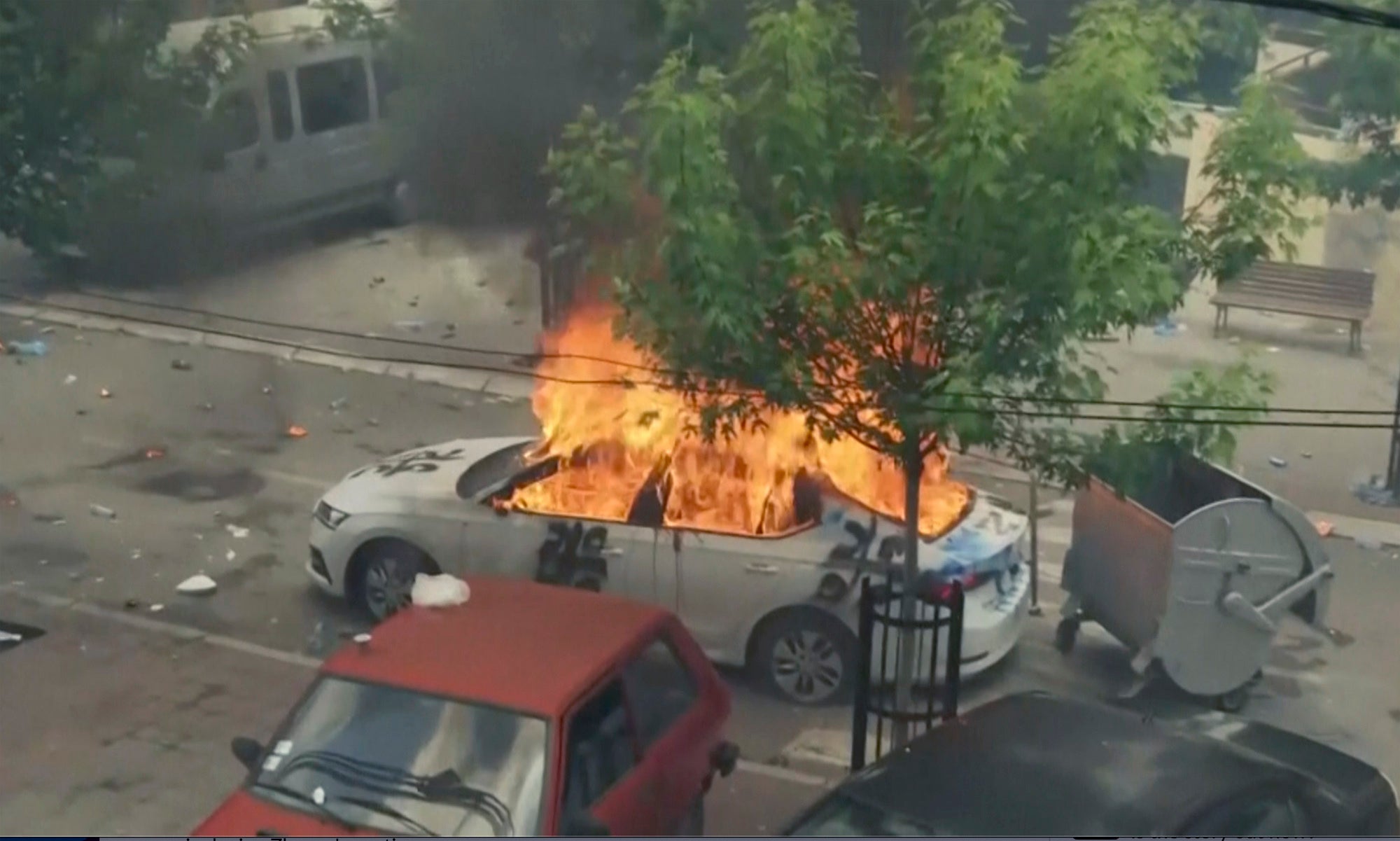China expresses support for Serbia in renewed Kosovo clashes involving NATO troops
China has expressed its support for Serbia following renewed violence between ethnic Serbs and NATO troops in Kosovo

Your support helps us to tell the story
From reproductive rights to climate change to Big Tech, The Independent is on the ground when the story is developing. Whether it's investigating the financials of Elon Musk's pro-Trump PAC or producing our latest documentary, 'The A Word', which shines a light on the American women fighting for reproductive rights, we know how important it is to parse out the facts from the messaging.
At such a critical moment in US history, we need reporters on the ground. Your donation allows us to keep sending journalists to speak to both sides of the story.
The Independent is trusted by Americans across the entire political spectrum. And unlike many other quality news outlets, we choose not to lock Americans out of our reporting and analysis with paywalls. We believe quality journalism should be available to everyone, paid for by those who can afford it.
Your support makes all the difference.China on Tuesday expressed its support for Serbia’s efforts to “safeguard its sovereignty and territorial integrity” following renewed violence between ethnic Serbs and NATO peacekeeping troops in Kosovo.
China’s ruling Communist Party has long been a critic of the NATO alliance, stemming partly from the bombing of Beijing’s embassy in Belgrade during the 1999 air campaign to end Serbia’s brutal crackdown on ethnic Albanian separatists in Kosovo.
The bombing, in which three Chinese journalists were killed, has long been used by Beijing to mobilize anti-Western sentiment. The U.S. apologized for the attack, blaming it on faulty intelligence. Its diplomatic missions in Beijing and other Chinese cities were assaulted in the fallout, setting ties on a negative trajectory that has grown ever more tense in recent years.
China, along with Russia and Serbia, does not recognize Kosovo’s 2008 independence and Foreign Ministry spokesperson Mao Ning on Tuesday placed the blame for the violence on a failure to respect Serbian political rights.
“We oppose unilateral actions by the Provisional Institutions of Self-Government of Kosovo," Mao said at a daily news briefing, referring to the Kosovo government in Pristina.
Despite Serbs boycotting recent local elections and seeking to prevent ethnic Albanian mayors from taking office, Mao said Serbs should be granted control over municipalities where they form majorities.
Violence was sparked when Serbs tried to take over the offices of one of the municipalities in northern Kosovo where Albanian mayors took up their posts last week. At least 30 troops from the NATO-led peacekeeping force in Kosovo, KFOR, were injured on Monday.
“We urge NATO to earnestly respect the sovereignty and territorial integrity of the relevant countries and truly do what is conducive to regional peace,” Mao said.
Serbian President Aleksandar Vucic was expected to meet with the Russian and Chinese ambassadors in an effort to show he has support for his policies.
NATO’s military intervention in 1999 eventually forced Serbia to pull out of the territory, but the dispute remains a flashpoint for conflict in eastern Europe.
Russian ally Serbia last year took the delivery of a sophisticated Chinese anti-aircraft system in a veiled operation, amid Western concerns that an arms buildup in the Balkans at the time of the war in Ukraine could threaten the fragile peace in the region.